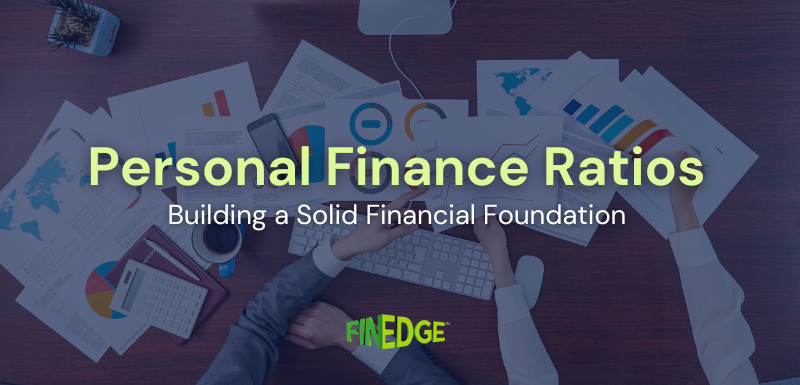Successful Investing – 5 Incredible Learnings From the Past 20 Years

The year was 2001 and Atul, an avid investor, was all geared up to secure his retirement. He was 40 years old then and his retirement was 22 years away. He started investing Rs. 25,000/- every month systematically in an equity mutual fund… Before I reveal the outcome of Atul’s investing journey, let us dive into some valuable investing lessons of the past 20 years.
Over the past two decades, it has become evident that the financial markets can simultaneously exhibit both calm and chaos, and to see through such fluctuations, can be very challenging. In times of a bull market, the excitement of stupendous returns carries one forward, but the chaos that sets in when markets go in a tizzy is where the real learning happens.
The past 20 years saw uncertainties, wars, financial crises, defaulting economies and much more, and yet a period in the Indian stock market history where the Sensex moved from 3000 to 75000 points. During this period, there have been opportunities and many challenges but in the midst of it all, there has been learning – immense learning about the markets, investing behaviour and investing principles for success.
True Wealth Creation Only Happens Over Long Term
We often come across stories of our clients, family or friends being offered to invest in avenues where high double-digit returns are promised in the shortest possible time. (sometimes less than a year) Well, the truth is that this does not happen. If you get lucky, you might not lose your money, but falling for the ‘high return trap’ without understanding the risk is often a regrettable mistake. Investing fads like crypto-currencies, Peer to Peer platforms or overseas stocks have always painted a positive picture (by showcasing short-term returns) without stating clearly the underlying risks involved. As I said, it comes with its learnings. The truth is that true wealth creation happens only in the longer term with the right instruments. Hence, look at the bigger picture, assess suitability, invest long-term and with purpose and sit back to see the magic of compounding taking effect on your investments.
Your beliefs about money and investing are critical. One has to ask oneself questions to validate your beliefs – “Am I happy investing Rs. 1 lac for 2-3 years to make a few thousand rupees as returns or am I willing to sail through choppy waters, prepare myself for the rough seas and wait patiently till I reach the shore” - in this case reaching a long term goal that would require true wealth creation.
Conquering Greed and Fear
Be it the dot com bubble, the 2008 Financial crisis, the COVID market meltdown, or the conflict between Ukraine and Russia, it is a given that unforeseen events and unpredictability will inevitably prevail. This brings me to my next point what we can do when things are unpredictable or unforeseen considering these events have a bearing on investment portfolios. For most, the response to such events with investments tends to be driven by a sense of apprehension or fear. "What if there is erosion of value in my investments?" and "This spells disaster for my portfolio; let me exit and book my losses" are constant thoughts running through the best of us.
History has established that individuals who did not panic during such times not only regained the value they had lost in their investment portfolio but achieved greater gains compared to the period preceding the events. For instance, in 2008, the Sensex, which was at 8700, experienced a decline of nearly 50%. However, by 2009, it had already generated returns of 81%. Similarly, in 2020, the Sensex stood at 27590 and underwent a drop of approximately 40%. Nonetheless, by October 21 the returns were almost 100%.
The flip side of fear would be greed. This is when investors take excessive risks or make impulsive decisions to pursue higher returns. This often comes to the forefront when the markets are rising and a herd mentality prevails around us. Greed can make investors make awry judgments and overlook potential risks. But conquering Greed and Fear becomes critical. If we manage both these emotions well and continue on our journey of investing with purpose, these would have little bearing on investments.
The Value of an Investment Expert Cannot Be Understated
The likelihood of investing success increases exponentially when you have an investing expert who guides you through the ups and downs of your investing journey. A well-crafted financial plan made by an expert serves as a roadmap, providing clarity and direction to your financial decisions. It helps you prioritize your goals, allocate resources and create the right investment behaviour. The investment journey is a long one and to have an advisor or an investment expert by your side could be the real difference between investing success or failure.
An investing expert will always focus on the importance of discipline, consistency and goal orientation while investing. Whenever an unprecedented event occurs, like the ones we discussed above, the role of an expert becomes even more critical. Your investment expert will help you navigate through volatile times and will make sure that you present the right investment behaviour and do not take any decision that could be detrimental to your long-term goals.
Invest With Purpose
Aligning your investments with your objectives is essential for successful investing. By having a clear purpose for your investments, you can make informed decisions that align with your long-term goals. Whether it's saving for retirement, buying a house, or funding your children's education, having a purpose allows you to stay focused and make wise investment decisions.
Additionally, investing with purpose helps you avoid impulsive decisions based on short-term market fluctuations, ultimately increasing the likelihood of achieving your financial objectives. Imagine redeeming your portfolio in a bear market based on ‘fear’ and not considering goals that could be longer term in nature. In conclusion, having a clear purpose for your investments is crucial for making informed decisions.
Enjoy Your Winnings When the Time Comes
Reaching an investing goal often signifies a sense of financial independence. This can only happen when one diligently plans, saves and invests to attain financial milestones.
As you achieve your investing goals, it is essential to celebrate them. This motivates you to keep pushing forward towards newer goals and objectives. Whether it is a short-term goal or a long-term one, if you demonstrate positive investing behaviour achieving any goal or objective becomes a real possibility.
And finally .... It is 2024 and Atul retired last year. His target corpus for retirement was about Rs. 1.5 crores which he wanted to achieve by saving 25,000 every month for 20 years. Instead, he created a corpus of over Rs. 4 crores. He stayed disciplined, invested with purpose and could weather the storms. The power of compounding taking effect!
In the end, the learnings have been many but to truly live them is of the greatest importance to being a successful investor!
Your Investing Experts
Relevant Articles
Understanding the Financial Planning Pyramid: Building Your Finances the Right Way
Most people juggle several financial goals at once, an emergency fund, retirement planning, a child’s education, or even short-term lifestyle goals like travel. Without a proper framework, it becomes difficult to decide what to tackle first. The Financial Planning Pyramid offers a simple and effective way to bring structure to your financial life. It ensures that essential protections are in place before you start saving and investing for long-term wealth.
Personal Finance Ratios You Should Understand Before You Start Investing
Successful investing begins long before you pick funds or set return expectations. It starts with understanding your financial foundation, how much you earn, how much you spend, and how much is left to invest consistently. These simple but powerful personal finance ratios offer a clear view of your financial health and help you make informed, goal-aligned decisions.
Why Mutual Funds Are the Smartest Way to Build Your Child’s Marriage Fund
Indian weddings are beautiful but expensive affairs, and their costs are rising every year. Mutual fund SIPs can help you plan ahead, ensuring your child’s big day is celebrated without financial stress.
.png)


.png)